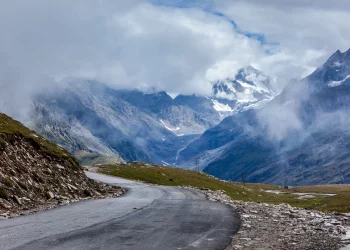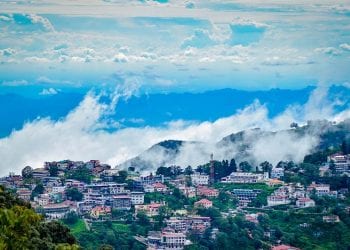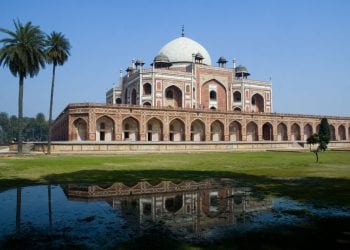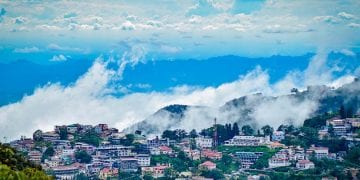Bala Quila Fort – Alwar: All You Want to Know
Alwar’s history dates back to 1500 BC when it was a part of the Matsya territories of Viratnagar. It became a formidable force in the 18th century under the reign of Pratap Singh who pushed the rulers of Jaipur back towards the south and successfully resisted the Marathas. Situated at a distance of 150km from both Delhi and Jaipur, Alwar is known for its fascinating forts, wildlife parks like Sariska Tiger Reserve, and magnificent Havelis. One of the main attractions of this city is the Bala Quila Fort also known as the Alwar Fort. It is a majestic fort nestled on a hill in the Aravali Range.
Alwar offers breathtaking views of the Aravali hills and has a plethora of places to see and explore. Despite its modernization, Alwar has not lost its rustic essence and charm. A visit to this place is sure to transport you to the glorious days when kings ruled from the Bala Quila Fort. The forts here will give you a glimpse of the life led by them. Adorned with majestic forts, beautiful Havelis, and colorful markets, Alwar is one of the most interesting cities in Rajasthani. It has witnessed the rise and fall of many Rajasthani kingdoms, and it was one of the first Rajput states to make an alliance with the British empire. Alwar is a paradise for lovers of Indian sweets as the milk cakes served here are famously delectable. Alwar comes under the NCR region and is a delightful weekend getaway from the busy and noisy city of Delhi.
A Brief History of the Bala Quila Fort in Alwar

Alwar has a generous sprinkling of forts, palaces and cenotaphs. The most prominent is the Bala Quila or Alwar Fort, sitting on a hill 300 metres above the city. It is believed that Hasan Khan Mewati constructed this fort in the sixteenth century. It passed through the hands of several rulers and finally it was annexed by the Kachwaha Rajputs in the eighteenth century. The Bala Quila Fort is also called the Alwar Fort owing to its prominence in the city. This fort is like a guardian to the magnificent city of Alwar owing to its formidable size and its location on the Aravalli range that stands tall above the city. The word Bala Quila means Young Fort, but going by its size and grandeur, it would seem that the fort has aged gracefully having withstood the ravaging effects of time. This fort has been handed over from one dynasty to another, including the Marathas, Yadavas and the Kachwaha Rajputs. It was the Kachwahas who laid the foundation of Alwar in 1775 after capturing the fort. Apart from its rich history, a visit to this fort also provides an amazing view of the city of Alwar from an altitude of over 300 metres.
This massive fort covers an area of 5 kms from north to south and 1.6 kms from east to west. The fort has six gates which are Jai Pol, Suraj Pol, Laxman Pol, Chand Pol, Krishen Pol and Andheri Gate. The walls are wonderfully crafted to depict stories that take you back to the golden era of the past. The fort also houses 15 large and 51 small towers!
A Brief History of Alwar

The history of Alwar dates back to 100CE. Alwar was earlier called Alpur. It was founded by the King of Amer under his name. The city eventually became Alwar. This place has seen the rise and fall of numerous Rajput clans. It was under the rule of Khanzada Rajputs, Nikumbh Rajputs, Badgujar Rajputs and finally Naruka Rajputs. Pratap Singh, a Rajput, took possession of Alwar from Jat Raja of Bharatpur through an agreement. Alwar developed into a princely state during the British era. On March 18, 1948, the state of Alwar was merged with the three neighboring princely states of Bharatpur, Dholpur, and Karauli. On 15th May, Alwar merged with Ajmer and another princely state to form modern-day Rajasthan. Later, it became a part of the National Capital Region owing to rapid development in this area.
Alwar- a Traveler’s Delight

The city of Alwar is a perfect amalgamation of royalty and wildlife, modernisation and tradition, and development and heritage. It witnessed the rule of the Rajputs, followed by Marathas, and Jats respectively. The rise and fall of dynasties has made Alwar a delightful mix of cultures. Alwar is also known for being the birthplace of one of the last few Hindu emperors of India, Hemu. Alwar is also home to the famous Sariska Wildlife Sanctuary that protects some of the rarest breeds of endangered tigers.
What is the Best Time to Visit Alwar?
The best time to visit Alwar is between the months from October to March. Since Alwar is in the desert state of India, summers can be scorching hot, so if you do visit Alwar during this time, make sure to stay hydrated! Winters are cool, calm, and pleasant. But if you want, you can also visit Alwar during the festival of Rakshabandhan that usually takes place in August. Rakshabandhan is celebrated in Alwar with kite flying competitions. Watching thousands of kites rise in the air at the same time is a beautiful sight!
Places to See in Alwar
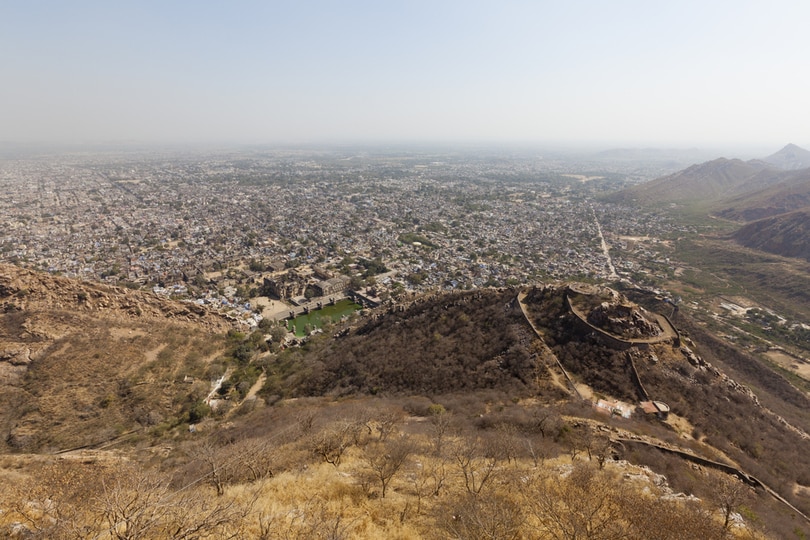
Alwar, being a city filled with exciting heritage and culture, has no dearth of places to see. One of the most prominent sights in Alwar is the Bala Quila Fort, also known as the Alwar fort. Let’s find out what’s so special about this fort.
Bala Quila Fort, Alwar

Situated in the Aravali range above the town of Alwar, Bala Quila Fort, also known as Alwar fort, is an impressive structure. It was built in the 15th century by Hasan Khan Mewati and has seen the rule of the Marathas, Yadavas, and the Kachwaha Rajputs. It is said to be the grandest creation of Hasan Khan Mewati. Once atop the fort, you can see fantastic panoramic views of the entire city of Alwar. It is one of the oldest buildings in the city and stands over an area of 5km from North to South, and 1.6km from East to West. A metaled road named Laxman Pole connects the fort to Alwar. It is the only metaled road here, and according to historical accounts, Pratap Singh, the founder of Alwar, entered the fort through this metaled way.
Pratap Singh was a Kachwaha Rajput who captured the fort in 1775 A.D. He laid the foundations of Alwar. Perched on a cliff, the fort gives amazing views of the entire city. Six gates flag the fort from all sides. They are Jai Pol, Suraj Pol, Laxman Pol, Chand Pol, Krishen Pol, and Andheri Gate. The structure of the fort is a great example of what one gets upon amalgamating Indian and Islamic styles of architecture. The beautifully crafted walls speak tonnes about the past grandeur of the fort. Each gate of this fort is named after a ruler as a mark of respect. The notable buildings in the fort are Jai Mahal, Nikumbh Mahal, Salim Sagar Pond, and Suraj Kund. In addition to these, the fort also houses fifteen temples. The most prominent of these temples are Sita Ram temple, Top Wale Hanuman Ji Temple and Chakradhari Hanuman temple. These temples, dating from the late 1700s, depict the spiritual fervor of the people of that era.
The fort has 446 openings for musketry that are surrounded by 8 citadels along with 15 large and 51 small towers. Jahangir lived in exile for three years in this fort. That portion of the fort is called Salim Mahal. The fort also houses a radio station that can be visited after taking prior permission from the Superintendent of Police, Alwar. The fort is situated at a distance of 12km from the main city of Alwar. The Bala Quila Fort is located near the Karni Mata Mandir atop the Aravali hills. You can take an auto-rickshaw or private cab to the foothill of the cliff. From there, there is a 7km steep path, which you will have to cover by foot.
According to the legend the first Mughal King of India- Babar- spent a night over here. While leaving, he took some treasure from this place to gift to his son- the future emperor of India, Humayun. Later the great Mughal King Akbar’s son- Jahangir- also spent some time here after his father banished him from the kingdom for attempting to assassinate Abul Fazal, who was among the nine jewels of Akbar’s court. The area of the fort where Jahangir stayed is called Salim Mahal. Later, in the year 1775, this fort passed into the hands of Pratap Singh who was the founder of the state of Alwar. It is said that Bala Quila was one of the most secure places in the city. The 52 small and 15 large towers situated on the ridge on the top of the fort gave a view of the entire city of Alwar. They were constructed keeping the security of the kingdom in mind.
The Bala Quila fort has been built in typical Indo-Islamic architecture and its walls have been embellished with beautiful sculptures. The grandeur of the fort shows the artistic finesse of that era. Besides beautiful stonework, the fort houses stunning structures such as the Nikumbha Mahal Palace, Suraj Kund, Salim Sagar Pond, Jal Mahal, and fifteen striking temples including Chakradhari Hanuman Temple and Sita Ram Temple. Each of these structures stand as tributes to the opulence of the past era, especially the Nikumbha Mahal Palace, which has been built using Bengal caned marble pillars along with large latticed balconies.
Alwar is a beautiful city, with a thriving culture and heritage. Its proximity to the major city of Delhi and its easy accessibility makes it one of the most appealing weekend getaways. If you wish to spend some time exploring the royal past of Rajasthan, and relax in the lap of nature at the same time, then Alwar is the place for you. Bala Qila, a sprawling fort built on the foothills on the northernmost edge of the Aravalli mountain range gives a picturesque view and weaves the story of forgotten times. It is suggested that you visit the fort at least once during your stay in Alwar, as you will get to see a panoramic view of the landscapes and lush meadows of Alwar. So pack your bags and travel back 1100 years to unfold history.
P.s. You might like these related resources:
- Junagarh Fort Bikaner – Heritage Tourist Attraction in Bikaner
- Brahma Temple- A Spiritual Adventure To Pushkar, Rajasthan
- Bharatpur bird sanctuary: A Complete Guide
Recent Posts
Top Picks

- OYO
 15 April, 2024
15 April, 2024 - Cultural Tour

- OYO
 15 April, 2024
15 April, 2024 - Cultural Tour

- OYO
 15 April, 2024
15 April, 2024 - Cultural Tour

- OYO
 15 April, 2024
15 April, 2024 - Cultural Tour

- OYO
 15 April, 2024
15 April, 2024 - Cultural Tour

Please rotate your device
Please go back to portrait mode for the best experience



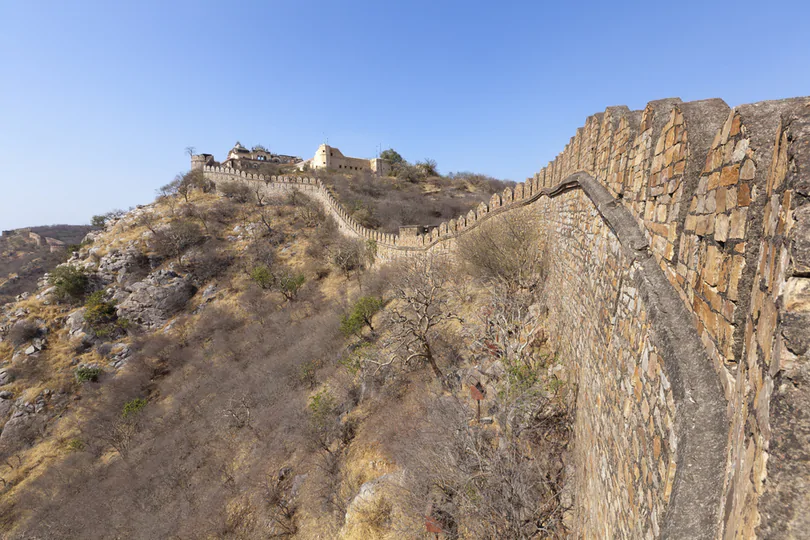

 April 15, 2024
April 15, 2024 